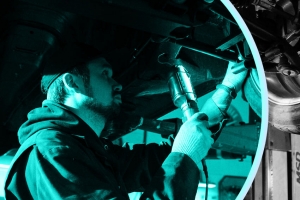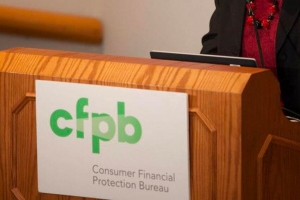
EEOC Sues Tesla for Racial Harassment
October 01, 2023The U.S. Equal Employment Opportunity Commission charged in a lawsuit that electric car maker Tesla Inc. violated federal law by tolerating widespread and ongoing racial harassment of its black employees and by subjecting some of these workers to retaliation for opposing the harassment.
According to the EEOC’s suit, since at least 2015 to the present, black employees at Tesla’s Fremont, Calif., manufacturing facilities have routinely endured racial abuse, pervasive stereotyping, and hostility as well as epithets such as variations of the N-word, “monkey,” “boy,” and “black b*tch.” Slurs were used casually and openly in high-traffic areas and at worker hubs. Black employees regularly encountered graffiti, including variations of the N-word, swastikas, threats, and nooses, on desks and other equipment, in bathroom stalls, within elevators, and even on new vehicles rolling off the production line, the EEOC said.
The EEOC’s investigation also found that those who raised objections to racial hostility suffered various forms of retaliation, including terminations, changes in job duties, transfers, and other adverse employment actions.
The EEOC investigated Tesla after EEOC Chair Charlotte Burrows filed a commissioner’s charge alleging that Tesla violated Title VII of the Civil Rights Act of 1964 by subjecting black employees to an unlawful hostile work environment and retaliating against employees for opposing harassment. Title VII prohibits racial harassment and requires employers who receive harassment complaints to take prompt and appropriate action to investigate and stop it.
After first attempting to reach a pre-litigation settlement through conciliation, the EEOC filed its lawsuit (EEOC v Tesla, Inc., Case No. 4:23-cv-04984) in U.S. District Court for the Northern District of California. The EEOC’s lawsuit seeks compensatory and punitive damages, and back pay for the affected workers, as well as injunctive relief designed to reform Tesla’s employment practices to prevent such discrimination in the future.
REPAIR Act Hearing Scheduled Today
September 26, 2023NIADA members, including several dealers, spoke with legislators and their staffs on the need to approve H.R. 906, the REPAIR Act, to help consumers.
On Wednesday, Sept. 27, the House of Representative’s Energy and Commerce Committee will hold a hearing on the resolution sponsored by Rep. Neal Dunn (R-Fla.). The hearing is slated to start at 10:30 a.m.
During last week’s NIADA Policy Conference in Washington, D.C., members held more than 100 meetings advocating for the right to repair legislation.
The REPAIR Act would give vehicle owners and their designee(s) access to diagnostics, repair, calibration and service for their vehicles to allow work to be completed by more repair providers, thereby reducing consumers’ costs. The cost for consumers to repair their vehicles has grown by more than 66 percent since 2000, according to the U.S. Bureau of Labor Statistics
According to the congressional summary of the legislation, the National Highway Traffic Safety Administration must issue standards for access to vehicle data through the standardized access platform. It also states the Federal Trade Commission must establish an advisory committee to provide recommendations on the implementation of this bill and assess and report on existing and emerging barriers to vehicle repair and vehicle owners’ control over their vehicle-generated data.
Firms Partner for FTC Compliance Solutions
September 13, 2023Accelerate2Compliance (A2C) has launched a strategic partnership with Privacy4Cars. A2C provides Federal Trade Commission compliance solutions for automotive dealerships to help protect from the risks associated with cyber security attacks, personal information leaks, and non-compliance penalties. The addition of Privacy4Cars’ patented vehicle privacy tools, including AutoCleared and Vehicle Privacy Report, will help A2C’s customers meet the emerging regulatory compliance requirements in the privacy sector.
The A2C program is built to help dealers install complete and technical FTC safeguards and related solutions. The A2C roadmap assists with identifying information security compliance risk, implementing policies and procedures, delivering ongoing training, and testing, and assessing vendor vulnerabilities.
Beginning today, A2C users will have access to sample policies and disclosures covering the collection and processing of personal information in vehicles. Those dealers will be able to easily supplement their A2C plan to include Privacy4Cars’ tools.
“The increased compliance regulations surrounding the collection and storage of personal information in vehicles has left even the most sophisticated enterprises vulnerable to costly liability and potential business interruptions,” said Greg Pfleider, CEO of A2C. “Partnering with Privacy4Cars to offer its suite of vehicle privacy tools to our customers furthers our commitment to provide dealerships with simple solutions to manage information security programs and build compliance records.”
Privacy4Cars offers a suite of services to expand protections, by focusing on privacy, safety, security, and compliance. Its patented AutoCleared solution helps users quickly and confidently delete vehicle users’ personal information (e.g., phone numbers, call logs, location history, garage door codes, and more) while building compliance records. Its Vehicle Privacy Report tool is a first-of-its-kind one hundred percent automated tool to make fair and transparent disclosures for all vehicles dealers have in their inventory.
In June, the FTC implemented updated guidelines under the Safeguard Rule, requiring businesses to follow stringent security practices. Just last month the California Privacy Protection Agency announced a review of data privacy practices by connected vehicle manufacturers and related connected vehicle technologies. “Right to know” and “Right to delete” are two key tenets of California’s Privacy Protection Act that clearly affect auto dealerships and have been spreading to other states.
“The best way to stay ahead of emerging privacy regulations is to make fair disclosures to consumers,” said Andrea Amico, Privacy4Cars’ Founder. “This means clear callouts on vehicle information pages, properly trained sales staff that can speak to what information is being collected, stored and shared by a vehicle, deleting stored personal information from all trade-ins, loaners, lease returns, and test drives, and building comprehensive compliance records to prove your commitment to protecting your customers’ privacy.”
CFPB Sues USAF Servicing Over Auto Loans
August 04, 2023On Aug. 2, the Consumer Financial Protection Bureau (CFPB) filed a lawsuit in federal court against auto-loan servicer USASF Servicing (USASF) for a host of illegal practices that harmed individuals with auto loans. These practices include wrongfully disabling borrowers’ vehicles, improperly repossessing vehicles, double-billing borrowers for insurance premiums, and failing to return millions of dollars in refunds to consumers. The CFPB is seeking to obtain redress for consumers and civil money penalties and stop any future violations.
“The CFPB is suing USASF for a range of misconduct, including illegally activating devices that prevented borrowers from starting their cars,” said CFPB Director Rohit Chopra. “Given the rising cost of cars during the pandemic and jump in auto loan debt across the country, the CFPB is working to root out illegal activity in this market.”
USASF is an auto-loan servicer headquartered in Lawrenceville, Georgia. USASF serviced auto loans that were originated by an affiliate, U.S. Auto Sales, Inc., which was a buy-here-pay-here auto dealer and lender with 31 dealerships in the Southeast. USASF offered both Guaranteed Asset Protection and collateral-protection insurance, which are products that consumers can buy when they buy or lease a car. In April 2023, U.S. Auto Sales wound down most of its businesses.
The CFPB alleges that USASF:
- Illegally disabled cars: Many auto lenders require that cars are installed with devices using GPS technology that allow the lender or servicer to prevent a borrower from starting a car. These devices are known as “kill switches” or “starter interrupters.” USASF incorrectly disabled vehicles at least 7,500 times and caused these devices to play warning tones in vehicles over 71,000 times during periods when the consumer was not in default or was in communication with USASF about upcoming payments. USASF remotely disabled vehicles at least 1,500 times after explicitly promising consumers it would not do so.
- Failed to refund premiums to consumers: USASF offered consumers Guaranteed Asset Protection, which covers some of the difference (or gap) between the amount a borrower owes on their auto loan and what the car insurance will pay if the vehicle is stolen, damaged, or totaled. When consumers paid off their loans early or USASF repossessed a car and charged off an account, consumers were entitled to refunds of any Guaranteed Asset Protection premiums paid in advance for periods where they would no longer have coverage. USASF failed to obtain millions of dollars in refunds from the Guaranteed Asset Protection administrator.
- Double-billed consumers and misapplied payments: When consumers were enrolled in collateral-protection coverage by a USASF affiliate, they were also charged for that same coverage by USASF. Approximately 34,000 consumers were double-charged for the insurance each billing cycle, in some cases for over a year, costing consumers millions of dollars. USASF also wrongfully applied consumers’ extra loan payments first to late fees or collateral-protection insurance instead of accrued interest. This misapplication of payments caused consumers to pay over a million dollars in interest and fees that they would not have paid if USASF had correctly applied their payments.
- Wrongfully repossessed vehicles: USASF illegally repossessed the vehicles of some consumers who never qualified for repossession or had taken action to stop the repossession. In some instances, USASF sold the vehicles that it had wrongfully repossessed.
The CFPB alleges that USASF’s multiple servicing practices were unfair and is seeking to obtain consumer redress and civil money penalties, as well as stop any future violations.
NHTSA Issues Fuel Economy Proposal
August 01, 2023A proposal for an average fleet fuel economy of 58 miles per gallon by 2032 for passenger cars and light trucks has been submitted by the National Highway Traffic Safety Administration. A 60-day public comment period will begin after the proposal is published in the Federal Register.
NHTSA will engage with a broad set of stakeholders during this period, including consumers, unions, automakers, states, environmental groups and others. The proposal would also drive fuel efficiency improvements for heavy-duty pickup trucks and work vans.
If finalized as proposed, the updated standards would save Americans hundreds of dollars at the pump, all while making America more energy secure and less reliant on foreign oil. NHTSA estimates that the combined benefits of its proposal exceed costs by more than $18 billion.
“Better vehicle fuel efficiency means more money in Americans’ pockets and stronger energy security for the entire nation,” U.S. Transportation Secretary Pete Buttigieg said.
NHTSA’s proposed fuel economy standards complement and align with the Environmental Protection Agency’s recently proposed emissions standards for similar vehicle fleets. NHTSA will coordinate with the EPA to optimize the effectiveness of its standards while minimizing compliance costs, consistent with applicable statutory factors. With the release of the proposal, NHTSA invites comments from all stakeholders on how this goal can be achieved.
Though NHTSA does not take electric and other alternative fuels into account in setting the standards, manufacturers may use all available technologies – including advanced internal combustion engines, hybrid technologies and electric vehicles – for compliance.
“CAFE standards have driven the auto industry to innovate in improving fuel economy in ways that benefit our nation and all Americans,” NHTSA Acting Administrator Ann Carlson said. “The new standards we’re proposing today would advance our energy security, reduce harmful emissions, and save families and business owners money at the pump. That’s good news for everyone.”
As one of the range of options on which the agency is taking public comment, the preferred alternative in NHTSA’s proposal includes a 2% per year improvement in fuel efficiency for passenger cars, and a 4% per year improvement for light trucks, beginning in model year 2027 and ramping up through model year 2032.
It also includes a 10% improvement per year for commercial pickup trucks and work vans (with gross vehicle weight ratings of more than 8,500 pounds and less than 14,001 pounds) beginning in model year 2030 and ramping up through model year 2035.
The proposal also models a range of additional alternatives. NHTSA requests comment on the full range of standards from the no-action alternative to the most stringent alternative modeled, including comment on combinations of standards that may not be explicitly identified in the proposal.











